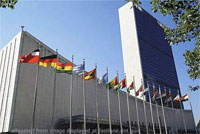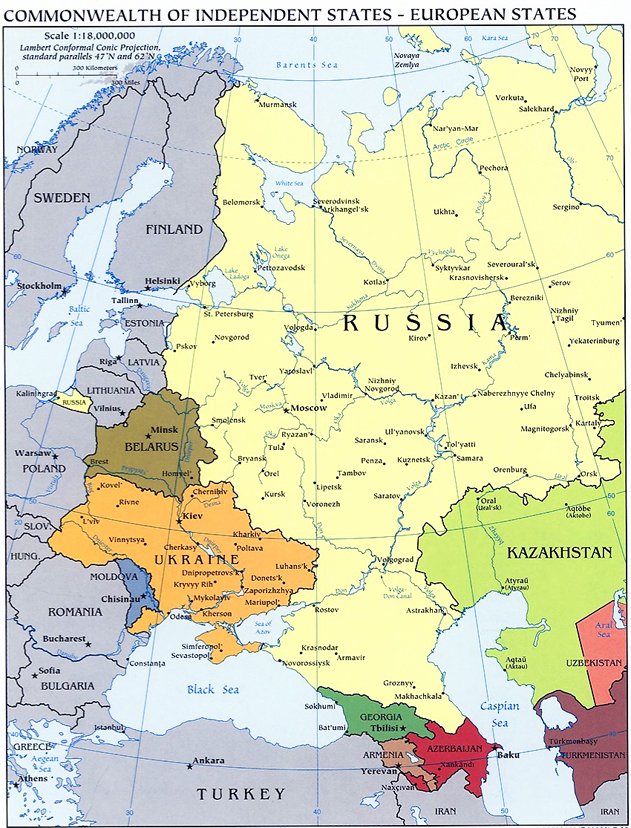Interfax: Russian peacekeepers may come to Ukraine only with UN authorization – MP Ozerov

MOSCOW. April 25 (Interfax) – Peacekeepers may be deployed in Ukraine only with the UN Security Council permission, while the Federation Council has exercised its powers regarding the Armed Forces and allowed the Russian president to send troops to that country, Federation Council Defense and Security Committee Chairman Viktor Ozerov said in an interview with Interfax.
There will be no peacekeeping mission on the agenda of the upcoming Federation Council session, he said. “The Federation Council has done its part of the work regarding the use of the Armed Forces by giving the Russian president permission to send them to Ukraine. And a decision to deploy peacekeepers on the Ukrainian territory, including in the southeastern regions, can be made only after the UN Security Council issues the relevant mandate,” Ozerov underscored.
If the UN Security Council members make this decision and Russia is offered to join the peacekeeping mission, the president will appeal to the Federation Council within the limits of his powers and consistent with the constitution, he said.
“Then we will grant our permission to involve Russian peacekeepers in the mission outside of the Russian Federation, proceeding from the reasons cited by the chief of state. That happened in the case of Abkhazia, South Ossetia, missions of Russian peacekeepers in Sierra Leone and other territories outside of Russia,” Ozerov explained.
There is no legal or political need for the deployment of peacekeepers as of yet, he added. “It may happen so that the peacekeeping mission may not so much separate the warring sides in the southeast as consolidate the process of Ukrainian division, their deployment may divide rather than unite, and the events will take a turn towards the Yugoslav scenario, which is extremely undesirable,” the parliamentarian said.
As to the latest statements of U.S. senior officials, Ozerov called far-fetched and untrue the allegations about the “hand of Moscow” in the events in southeastern Ukraine. “It’s like laying one’s own fault at somebody else’s door. The militia men in southeastern Ukraine are not a party to the Geneva deal or a partaker in those negotiations. The Kyiv authorities should take the first step towards de-escalation of the conflict, set an example of the implementation of the Geneva agreements. The first thing the Verkhovna Rada did for Maidan supporters was to pass a bill on their amnesty. Why don’t they do the same for the southeast?” Ozerov wondered.
In his opinion, Kyiv should pull out forces after it passes an amnesty law. “It is not a crime that people in the southeast like Russia. The Kyiv authorities should listen to the pressing needs of our citizens residing in the southeast instead of sending Right Sector fighters there,” the committee chairman said.
In contrast to Maidan, people in the southeast are fighting for their lives, not for power, he said. “What should we tell people in this life-or-death situation? Stop your resistance and turn yourselves in to the Kyiv authorities? Can a person in one’s right mind do so?” Ozerov asked.
It is a position of Russia not to engage Russian troops unless Ukraine sees “genocide of the Russian people, a threat to the life of our servicemen but there are no such things in these regions, and a threat, a real threat to life,” he stressed.
“The preamble of the Federation Council resolution concerning the use of Russian troops in Ukraine clearly states that our troops will provide for the security of Russians, our servicemen and our compatriots,” Ozerov said in conclusion.

